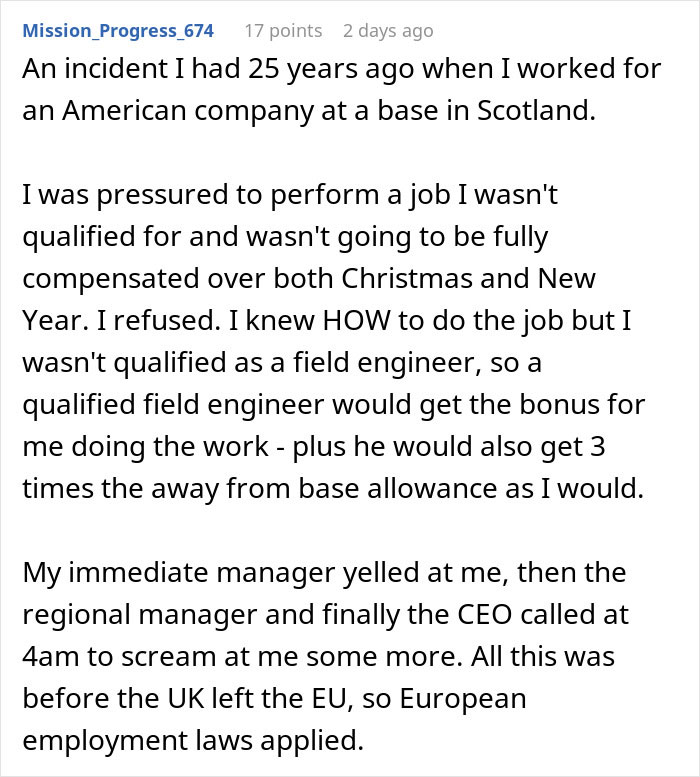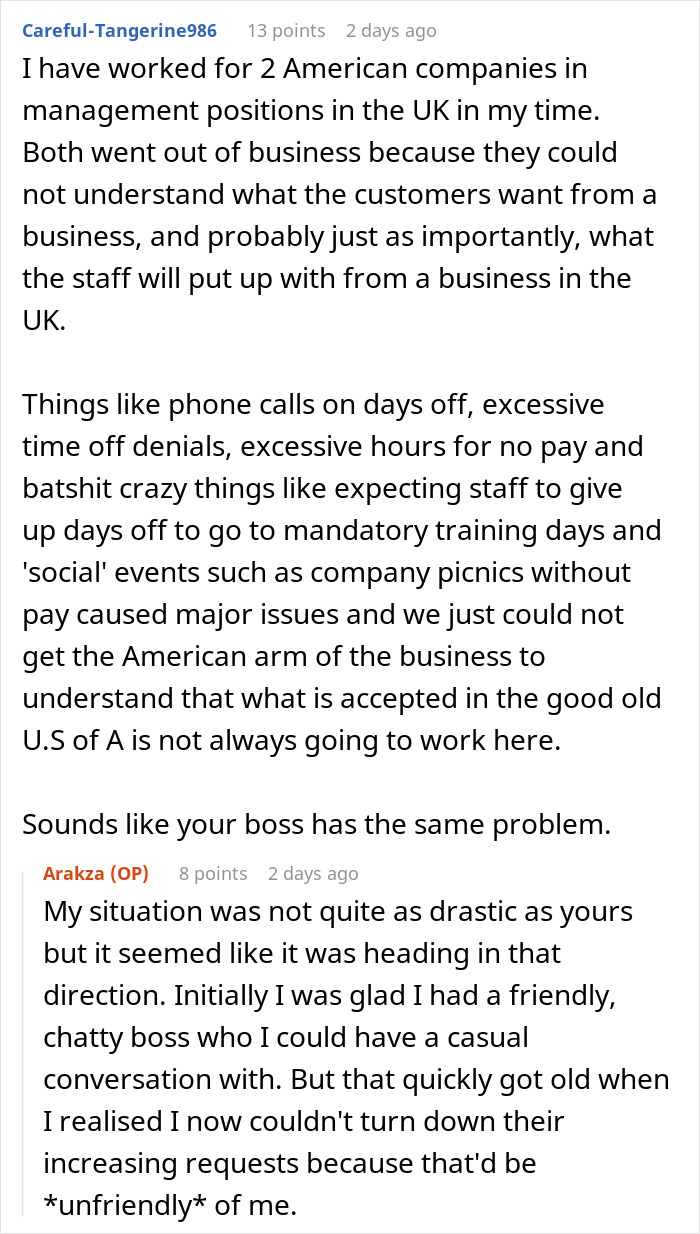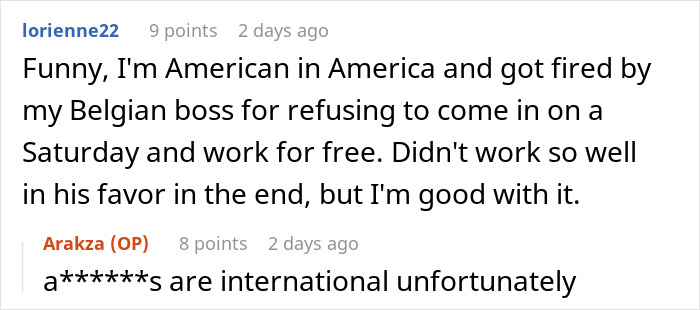It’s safe to say no one likes being asked to work on their days off, right? Unfortunately, this was all too familiar for one woman on Reddit dealing with an entitled American boss while living in Germany.
He was all for praising the European work-life balance—until it came to respecting hers. Despite his claims, he would often call her on weekends and pile on extra tasks during her days off.
Fed up with the relentless demands, she insisted on being paid for the additional hours she was putting in. The boss didn’t take it well, to say the least. Keep reading for the full story.
The woman was frequently asked to sacrifice her weekends and do extra work on her days off

Image credits: Karolina Kaboompics / pexels (not the actual photo)
Reaching her limit, she stood up and requested to be paid for the overtime, but her boss wasn’t happy about it
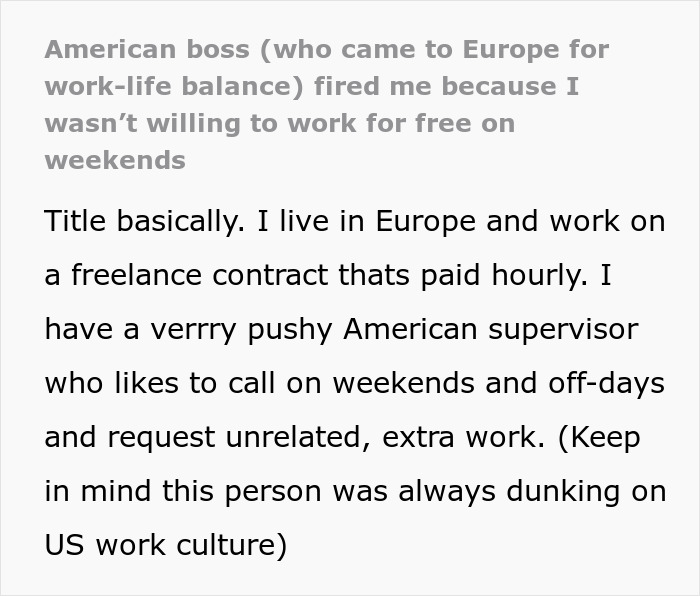
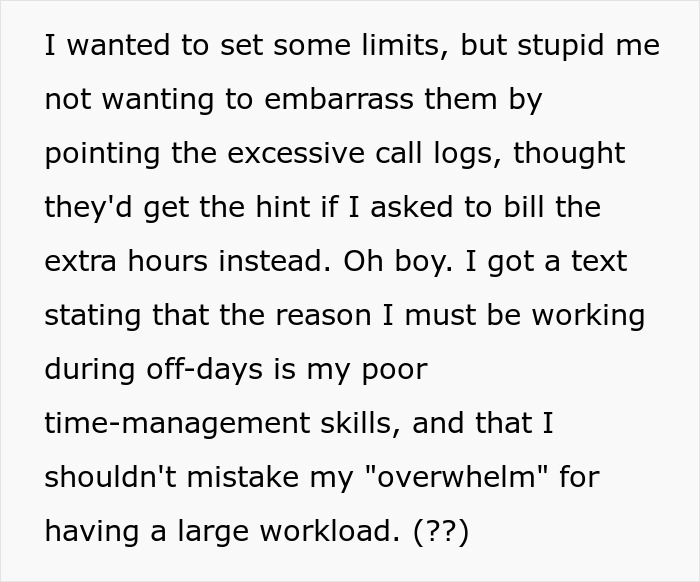

Image credits: Firmbee.com / unsplash (not the actual photo)
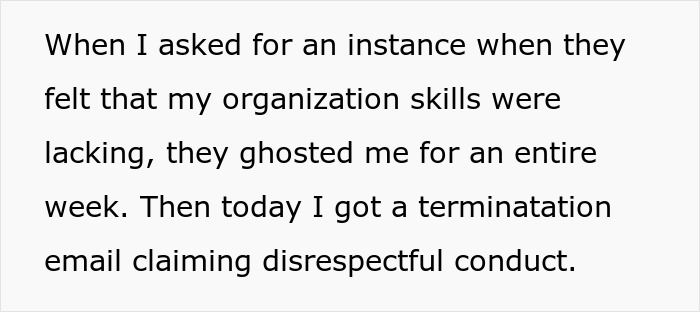
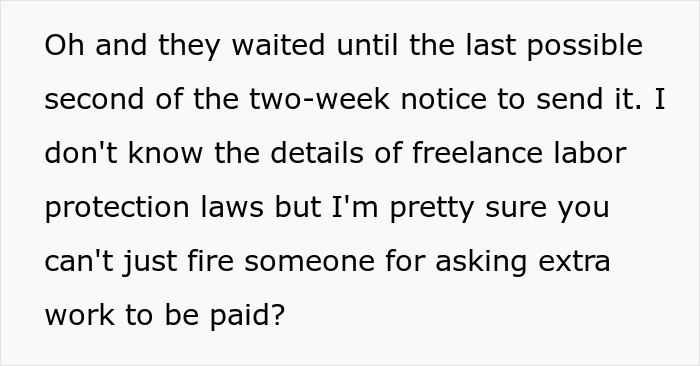
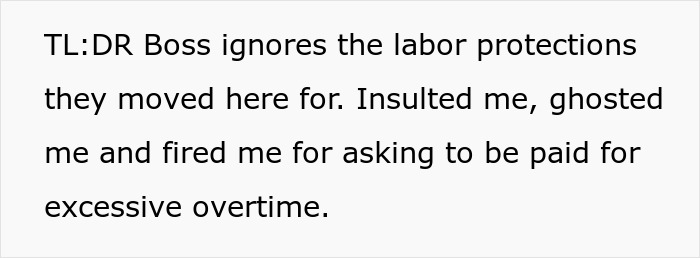
Image credits: Arakza
Contrasting work culture in the U.S. vs. Europe

Image credits: Anna Tarazevich / pexels (not the actual photo)
Americans live to work, while Europeans work to live. Or so the saying goes. There’s plenty of debate about the truth of that statement and whether it’s better to build a career in one place or another. However, it’s clear that workplace culture on either side of the Atlantic has its distinct differences.
The most notable aspect lies in how much time each culture is willing to devote to their job. This can even be observed when you look at how the U.S. and Europe approach their breaks. In America, while many companies do offer lunch breaks, federal law doesn’t require them, and regular coffee breaks aren’t typically part of the workday as they are in many European countries.
Take Germany, for example, where a 15-minute coffee break is a common practice, often taken once or twice a day. In Sweden, there’s even a lovely tradition called ‘fika,’ where people enjoy coffee and treats together.
Contrary to popular belief, Europeans don’t usually take several hours for lunch. Their breaks typically last between 30 minutes to an hour, depending on the country. In Portugal, however, about 50% of employees enjoy longer lunches, often exceeding an hour, making it an exception among their European counterparts.
Moreover, eating lunch away from the desk is encouraged in Europe. Until 2021, it was technically illegal in France to eat at your desk, although enforcement wasn’t strict. This stands in stark contrast to the U.S., where, according to a 2015 study, four out of five Americans eat lunch at their desks—often while continuing to work.
Of course, U.S. workers take pride in their strong work ethic. Recent OECD data ranks the U.S. among the top nations for average hours worked. However, the lack of mandatory paid leave is telling; the U.S. is the only advanced economy without this benefit, as highlighted in a 2019 report by No-Vacation Nation.
In the EU, a minimum of four weeks of paid vacation is mandatory for all member states. Many European countries, like France and Denmark, even offer five weeks or more of paid vacation.
Meanwhile, according to Forbes, 31% of U.S. employees don’t have access to any paid time off. The average American worker gets just 11 days of paid vacation per year and 7.6 paid holidays, with the typical worker using only 17.4 days of PTO each year.
Despite these numbers, when you compare productivity, Europeans hold their own against Americans, showcasing impressive efficiency despite working fewer hours.
That said, it’s important to recognize that there’s no definitive answer to whether working in Europe is always better. It ultimately depends on various factors, including your specific job, personal fulfillment, and what you value most in life.
Commenters encouraged her to take action and file a complaint against her boss
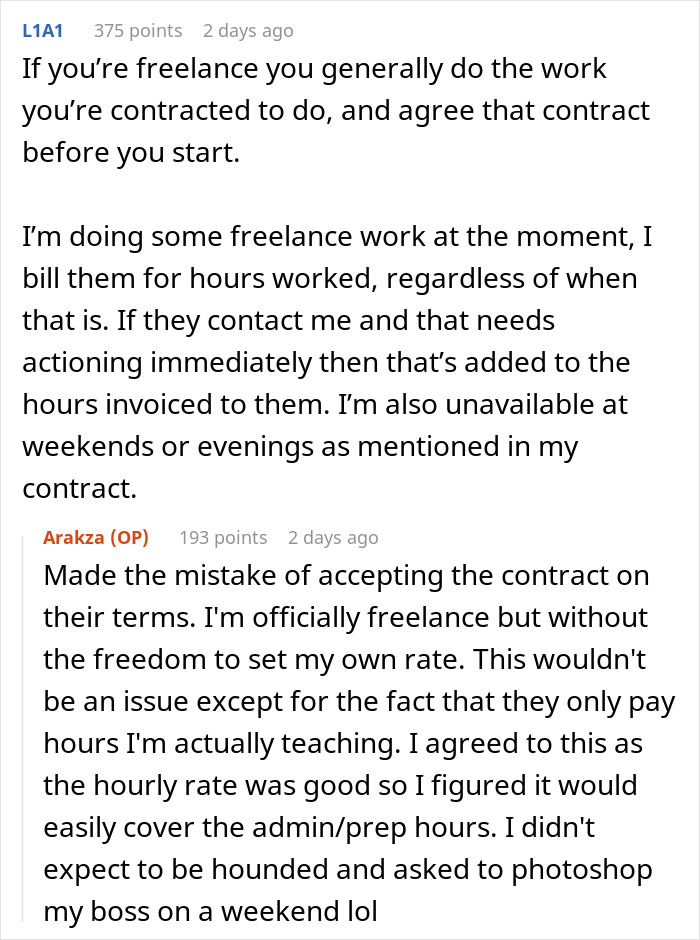
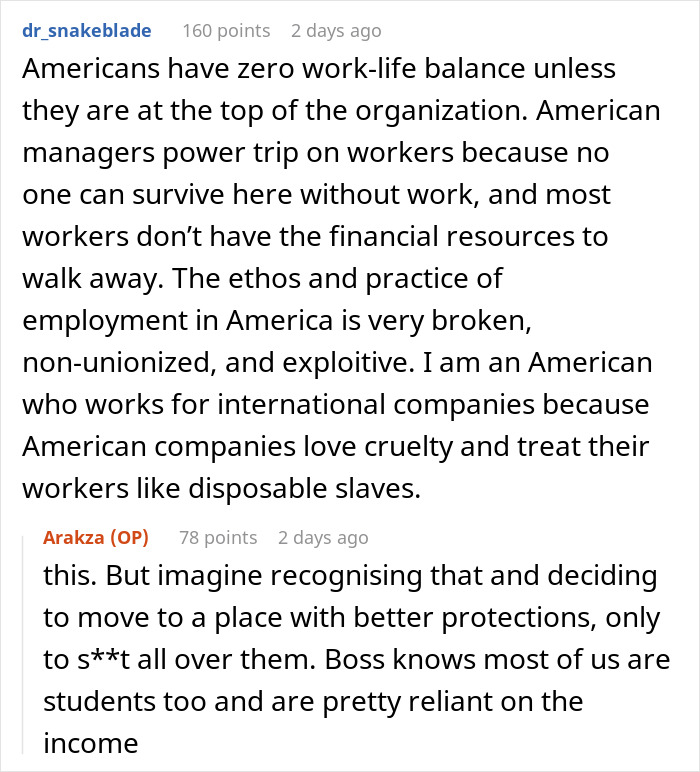
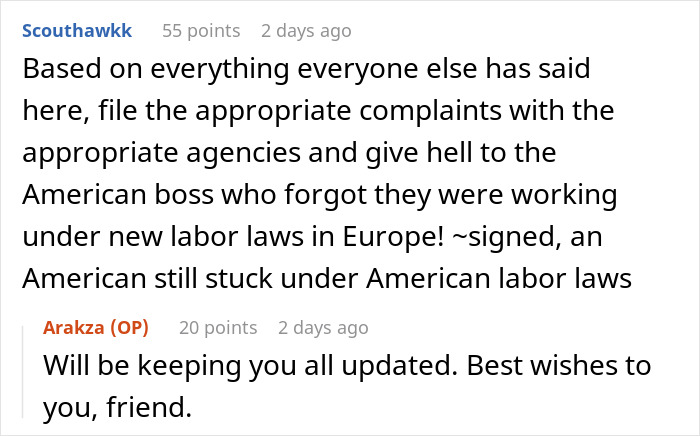
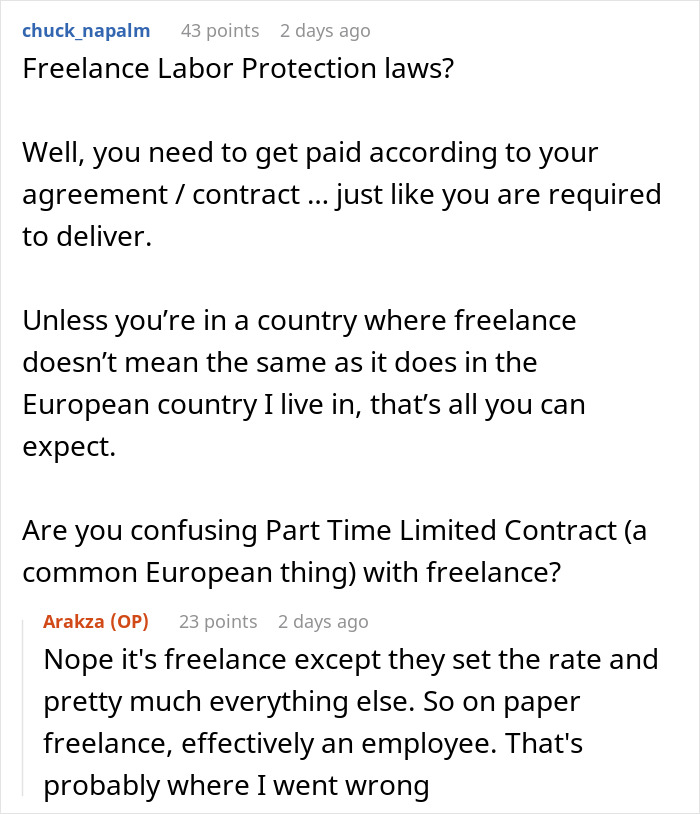
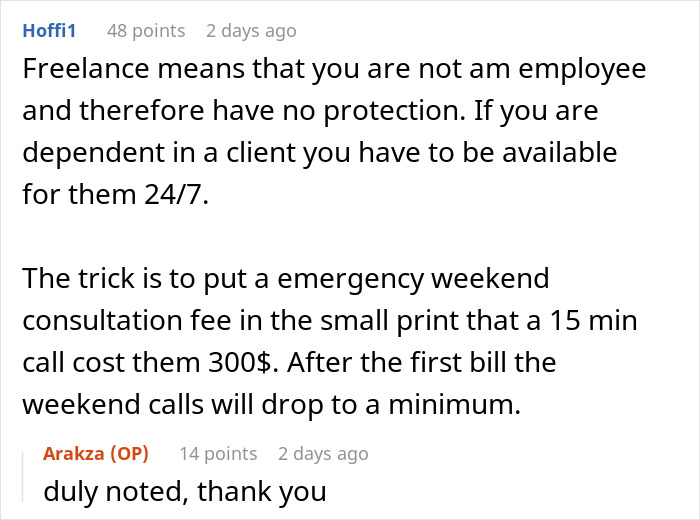
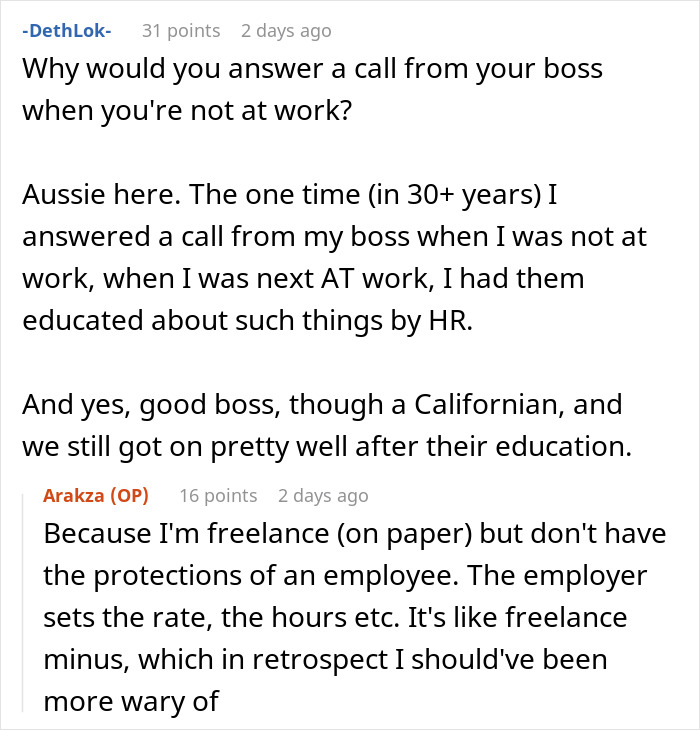
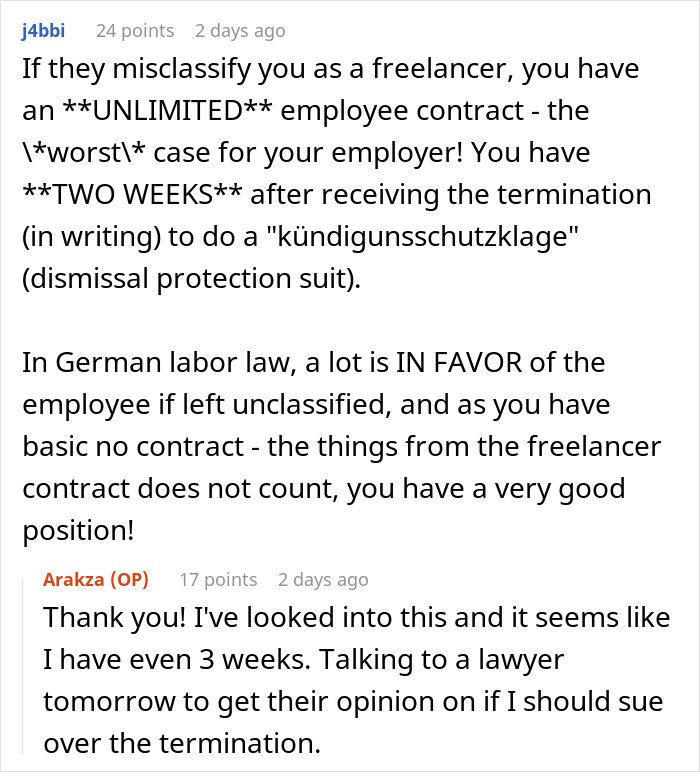
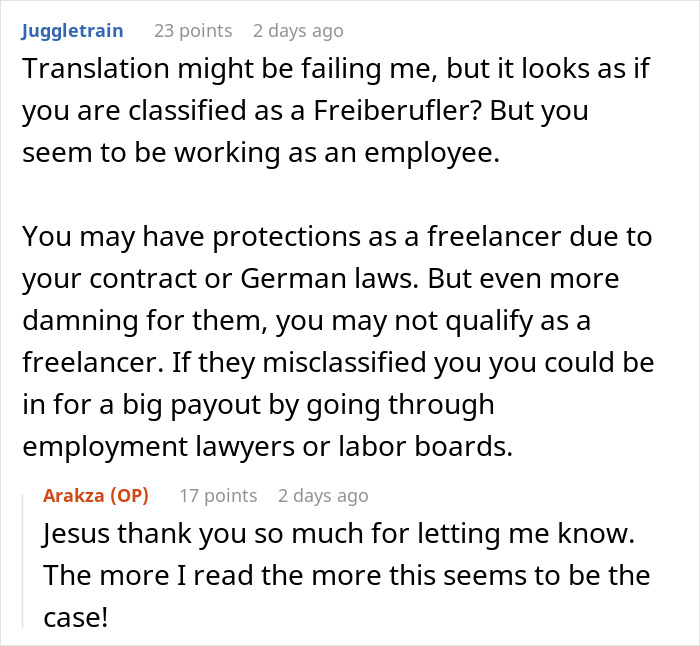
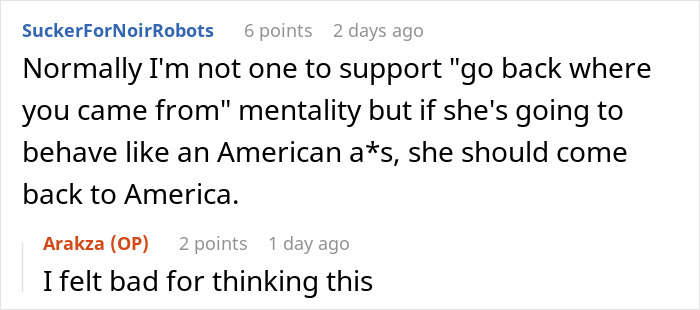
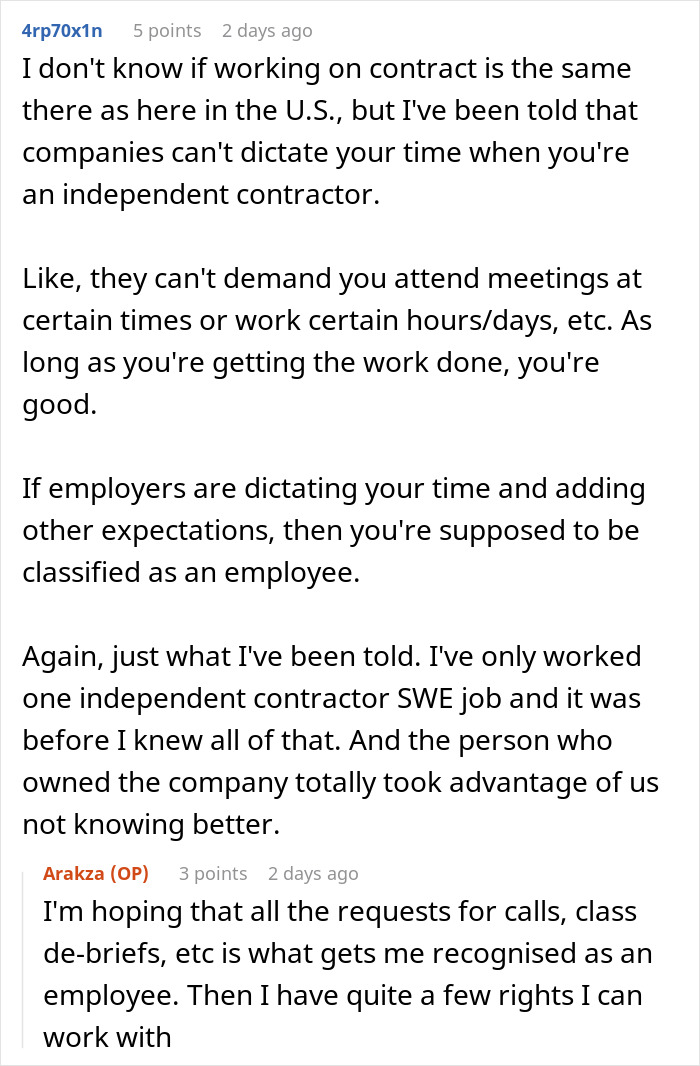
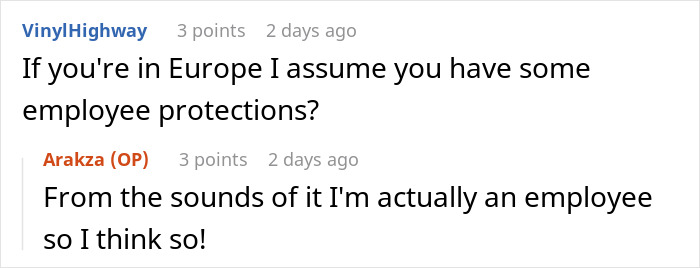

Other users shared their own horrible experiences about working for American companies
